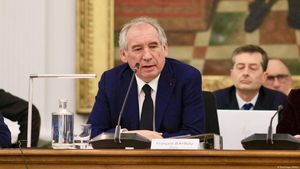The Dutch government has taken decisive action to extend its emergency energy fund, providing much-needed relief for low-income households struggling to pay soaring energy bills. After lengthy negotiations involving the energy sector, the cabinet led by Minister Sophie Hermans has earmarked 60 million euros for this initiative, supplementing it with 10 million euros from energy companies.
Rising energy prices, particularly those related to gas, have placed significant financial pressure on many households. State Secretary Jurgen Nobel highlighted the magnitude of this challenge, stating, "Many households are worried about whether they can afford their energy bills. For them, it is good news they can apply for support this year." Last winter, the emergency fund, known as the Tijdelijk Noodfonds Energie, was used by approximately 100,000 individuals who earned less than twice the social minimum and spent more than 10 percent of their gross income on energy costs.
The decision to continue funding this emergency support aligns with the acute need for assistance among low-income citizens during this period of high energy costs, which have surged partly due to global market fluctuations. Reports indicate gas prices are currently double what they were last year, with some suppliers now charging rates exceeding previous governmental price caps established during the energy crisis.
For many applicants, the fund significantly alleviated their energy burdens, offering about 100 euros per month to those eligible. Notably, the application process and guidelines for utilizing this fund are still under development. Nobel informed the parliament after the cabinet meeting, clarifying, "The terms for utilizing the scheme have yet to be announced, but we are working with the highest urgency to facilitate this availability. People can leave their information on the website of the temporary energy fund and will be notified when the fund reopens for applications."
The negotiations to extend the fund sparked concerns about potential financing issues, particularly with energy companies hesitant to contribute, fearing conflicts with regulatory definitions of state aid. The energy sector's participation has since been resolved, allowing the cabinet to move forward without immediate issues about compliance with European Union guidelines.
Consumers have experienced alarmingly high energy costs, with energy provider Pure Energie recently setting new rates around 1.49 euros per cubic meter of gas, surpassing the previous government price limit of 1.45 euros. This economic situation has magnified public anxiety concerning energy affordability, pushing the government to recognize the necessity for both short-term aid and long-term solutions.
While the emergency fund provides interim relief, the cabinet is actively searching for more comprehensive strategies to support households over the long haul. Minister Hermans pointed out, "The government is still seeking permanent solutions to aid those with lower incomes," emphasizing the importance of eliminating financial hurdles during these unprecedented times.
Looking forward, the government anticipates some relief from high gas prices post-winter due to increased global production capacities of liquefied natural gas (LNG). This change could translate to lowered prices for consumers and industries alike. Nonetheless, this prediction does not eliminate the immediate challenges households currently face, nor does it guarantee energy cost stability, as policymakers continue to be faced with the complex dynamics of the energy market.
The urgency displayed during these negotiations has marked this period as pivotal for Dutch households grappling with energy hardships. The positive developments surrounding the emergency fund mark the government's commitment to safeguarding its citizens against the financial burdens stemming from energy expenses, particularly for vulnerable populations. The hardworking families impacted by high energy bills can find solace and assistance through these government efforts, even as discussions for permanent resolutions are underway.
All eyes remain on the cabinet as they finalize the functioning mechanisms of the extended fund. People with energy requirements are encouraged to stay alert for updates on how and when they can access these supports. The road to sustainable energy and financing options related to it remains thoroughly deliberated within the government halls, but solutions are evidently being pursued, aiming for stability within the energy market.
With gas prices slowly becoming more manageable, as evidenced by recent fluctuations, the government feels well-prepared for the coming winter, irrespective of whether temperatures reach historic lows. Hermans noted, “The Netherlands is prepared for the coldest winter of the past thirty years.” Assessing the current market trends, it appears necessary measures might finally pave the way to more favorable energy conditions for the Dutch populace.



